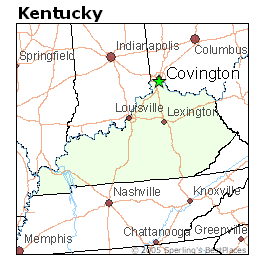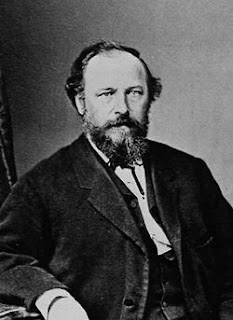This story appeared in the
Covington Journal of October 29 ,1859 and I found it to be interesting to see this viewpoint from one newspaper about others. Its opinion on the rise of such publications indicating the possible decline of slavery in border states is fascinating too, though I doubt it actually was accurate. Calling slavery "the institution" caught my eye as well.
Freesoil Press in Slave States
No haste of the growth of Black Republicanism is more alarmingly significant than the establishment of newspapers advocating freesoil principles in slave commonwealths. A few years since, such attempts would have been regarded as dangerous and incendiary. Now, in many of the border slave States, freesoil publications are not only tolerated, but looked on with an eye of favor by many of the population, all of which is ample evidence of the decrease of the strength of the institution in those States, truly foreshadowing early ultimate abolition there.
There are, proudly remarks a Northern freesoil contemporary, now ten Black Republican journals printed in English and eight in German, making eighteen in all, published in slave States, distributed as follows:
The Missouri Democrat, St. Louis, Missouri; The Free Democrat, St. Joseph, Mo; The Sentinel, Kansas City, Mo.; The Free South, Newport, Ky.; The Wheeling Intelligencer, Wheeling, Va.; The Wellsburg Herald, Wellsburg Va.; The Ceredo Crescent, Ceredo, Va.; The National Era, The Republic, Washington D.C.; The News and Advertiser, Milford, Del.
German - Der Anzeiger des Westens, Die Westliche Post, St. Louis, Mo,; Der Hermann Wochenblan, Hermann, Mo.; Der St. Charles Demokrat, St.Charles, Mo.; Die Deutsche Zeitung, St. Joseph, Mo.; Die Missouri Post, Kansas City, Mo.; Der Anzeiger, Louisville, Ky.; Der Baltimore Wecker, Baltimore, Md.
We are of the opinion that several more ought to be added to the above list, but "sufficient unto the day is the evil thereof." We shouldn't be surprised if moderate freesoil journals were published in this city in three years. With Seward as President, the "freedom of speech and of the press" would probably be protected. At all events Seward would make the attempts and with the office holders and power and patronage of the Federal Government to back him, he might be successful.
Republished from the New Orleans Crescent
----
Was this really a story saying a newspaper would be unhappy about freedom of the press being "protected?" That is how this article reads to me and I find it interesting. Was avoiding abolitionist sentiment more important than its own expressly listed Constitutional rights?
The assumption that Seward would be the next President is also interesting, though not unusual for the time.










